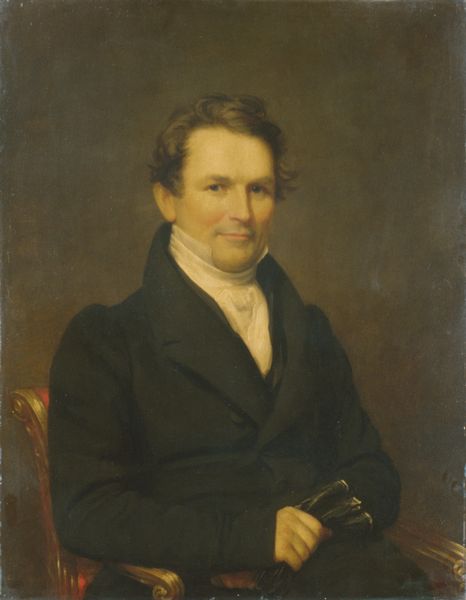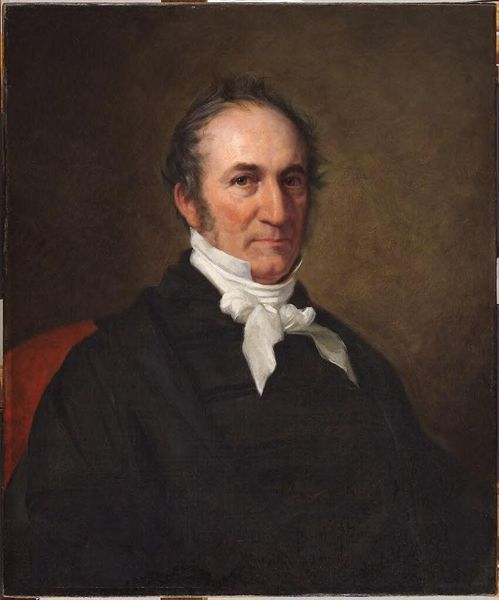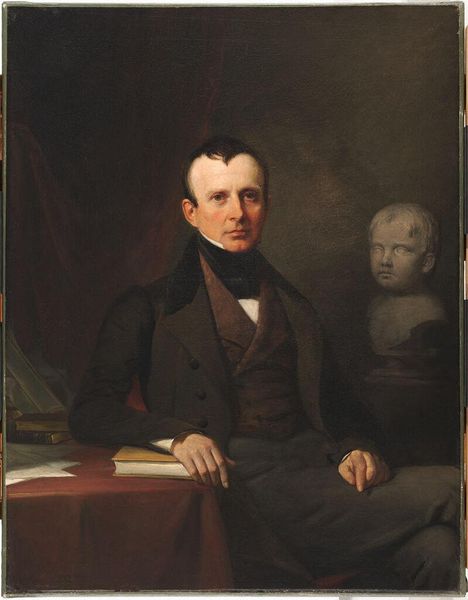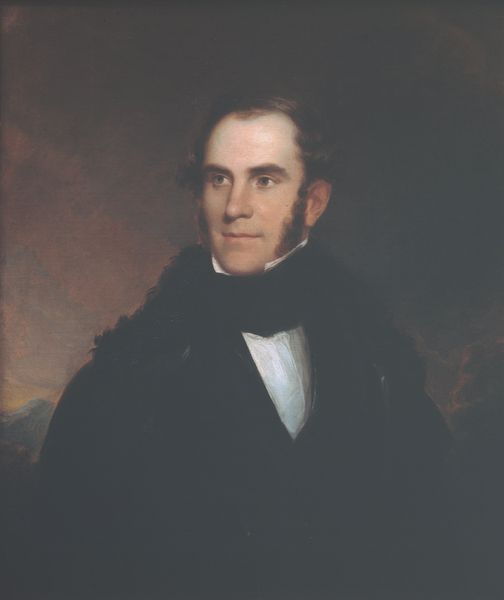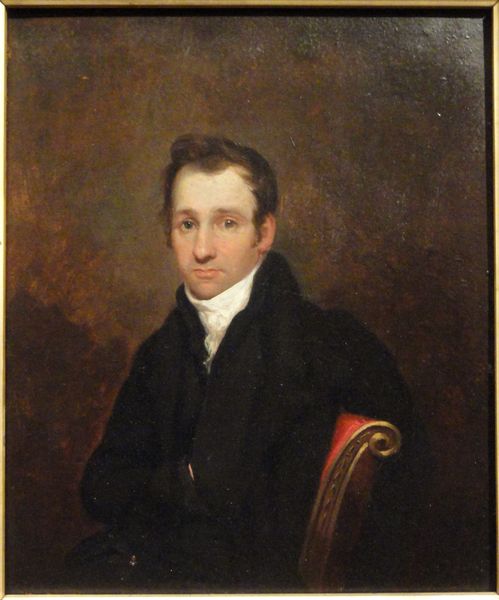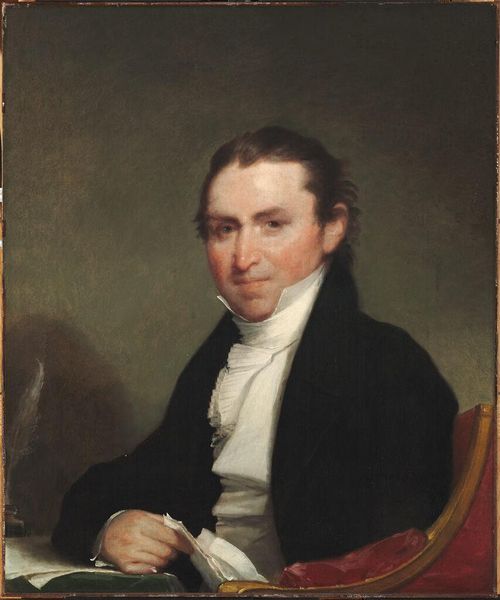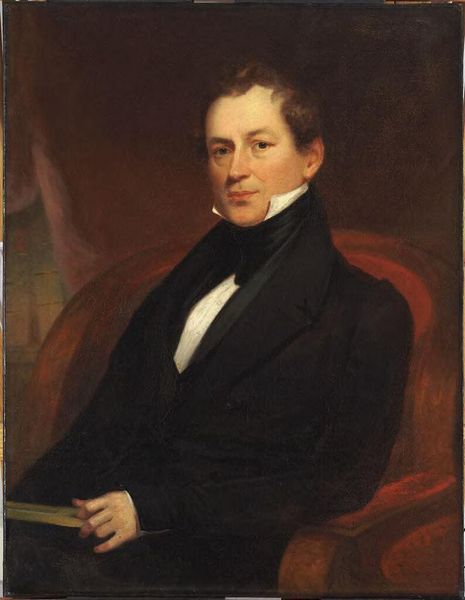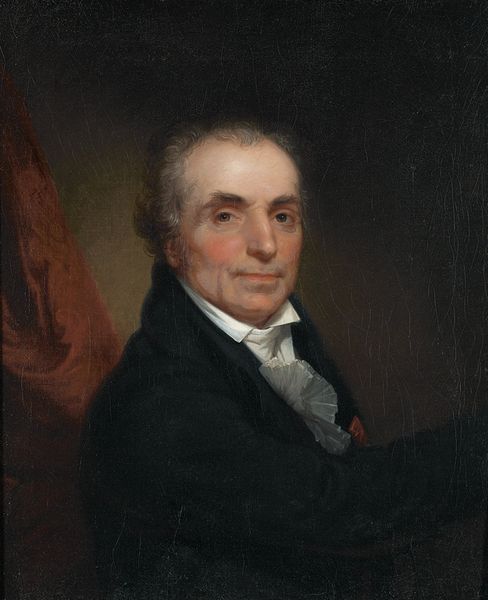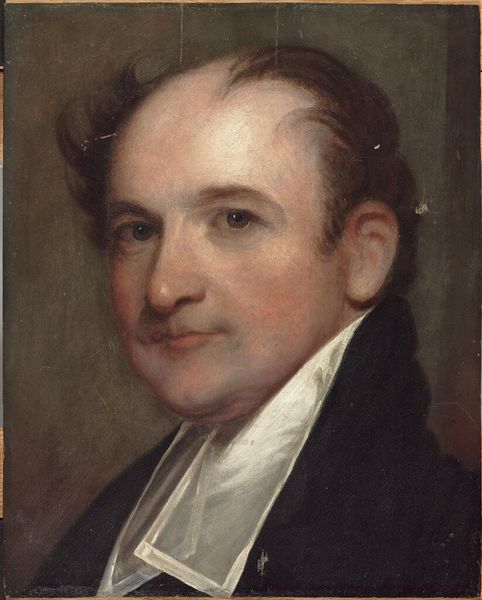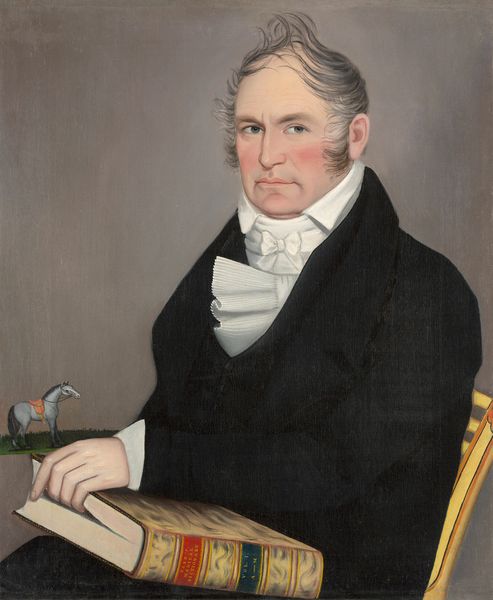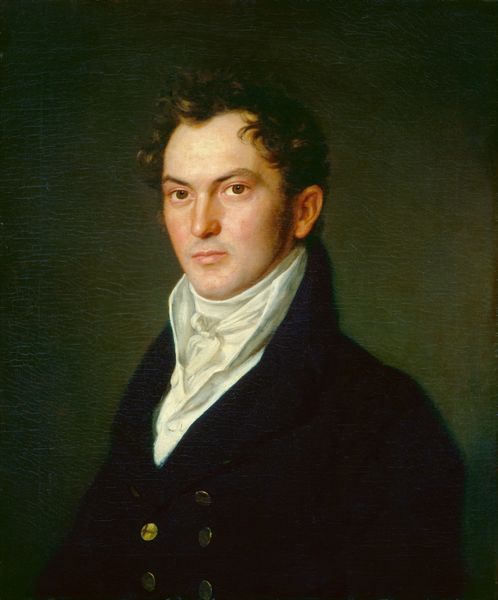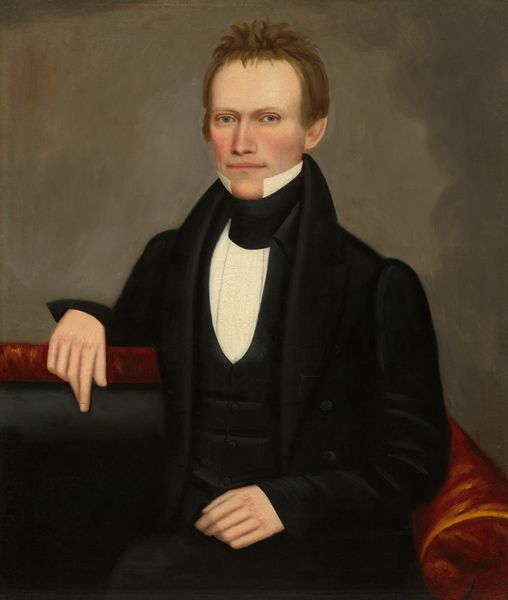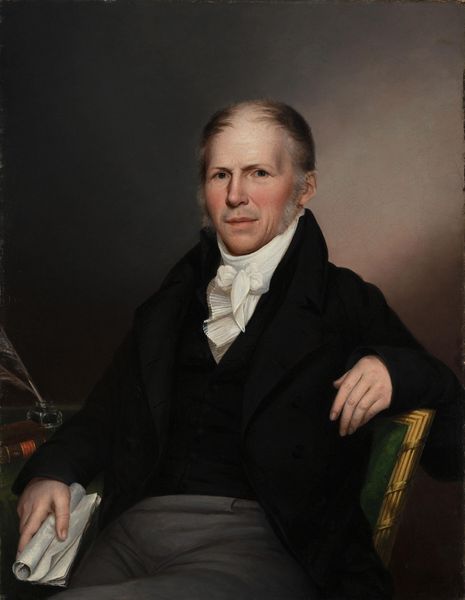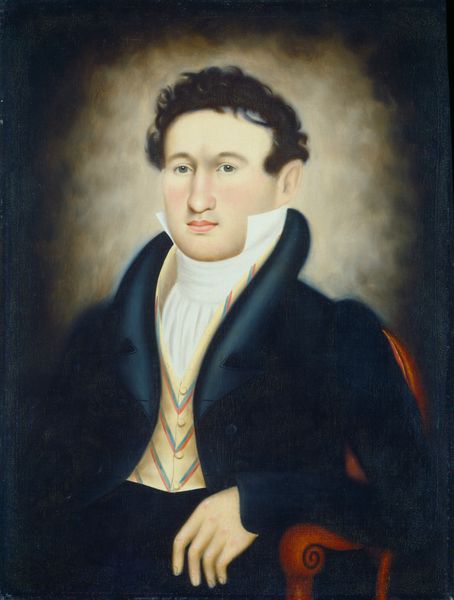
painting, oil-paint
#
portrait
#
painting
#
oil-paint
#
romanticism
#
academic-art
#
realism
Copyright: Public domain
Editor: Here we have Rembrandt Peale's "Portrait of Horace H. Hayden," created in 1828. The oil paint gives a dignified air to the subject, yet there's also an undeniable sense of restraint, almost a somber stillness about the figure. What sort of reading do you have about it? Curator: Well, first note that Horace Hayden was a prominent dentist – which might not seem immediately relevant, but in 1828, dentistry was still finding its professional footing. He is depicted holding a book—the book serving as a symbol, doesn’t it, Editor? A signifier of knowledge and a visual cue associating Hayden with intellectualism. Editor: So the book isn’t just a prop, but a symbol of professional aspiration? Curator: Precisely. Consider how posture, composition, and dress codes coalesce to shape our readings: Hayden's relatively plain dark coat contrasts with the white linen of his shirt, focusing our eye on his face—which itself is imbued with subtle, yet insistent confidence. What is the collective meaning? Editor: That Hayden wants to be viewed as more than just a medical man. He’s trying to build credibility for himself and his profession through how he is depicted. It speaks to an attempt at upward mobility. Curator: In essence, the symbolic language reinforces the dignity he sought to embody – we now see the intersection between individual aspiration and the nascent professionalization of dentistry in America. The imagery helps him, and dentistry, be taken seriously. What else did you find intriguing? Editor: Understanding the social context definitely brings another layer to the painting. Thanks. Curator: My pleasure. Visual imagery holds power, especially across generations.
Comments
No comments
Be the first to comment and join the conversation on the ultimate creative platform.
